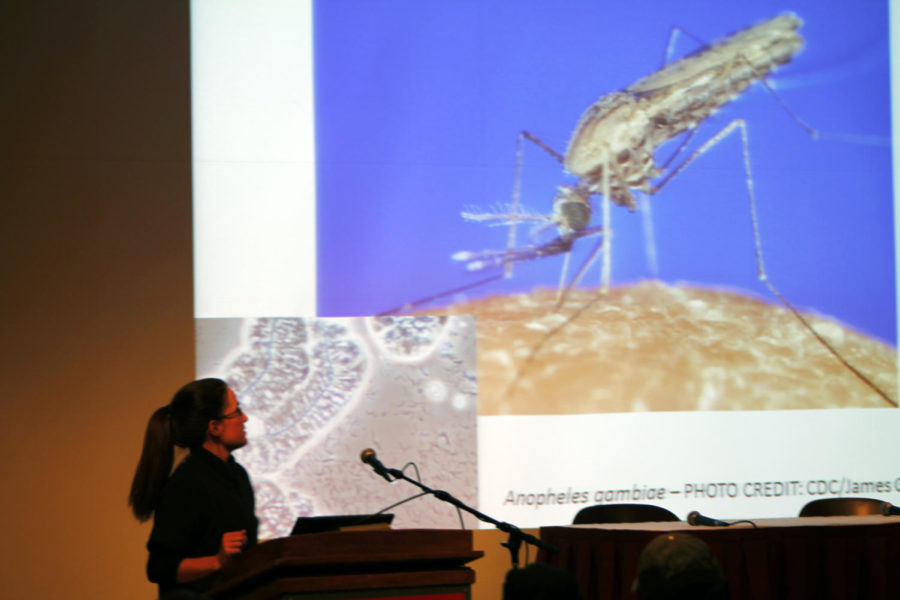“Killer in the Dark” documentary promotes malaria awareness
Photo: Adam Ring/Iowa State Daily
Lyric Bartholomay, associate professor of entomology, speaks on the effects of disease transmitted by mosquitoes during a discussion of the documentary, “A Killer in the Dark,” put on by the Imagine No Malaria initiative Wednesday, Oct. 10, in the Sun Room of the Memorial Union. Imagine No Malaria is an initiative to battle malaria through the distribution of insecticide-treated mosquito nets and how to properly use them in Africa.
October 11, 2012
ISU students learned about the worldwide effects of malaria through a documentary and discussion titled “A Killer in the Dark” on Wednesday, Oct. 10, in the Sun Room of the Memorial Union.
Imagine No Malaria is a global effort supported by the United Methodist Church, alongside partners including the Bill and Melinda Gates Foundation, the World Health Organization, and the United Nations Foundation. It is a comprehensive effort to beat malaria, particularly in Africa where a life is lost every 60 seconds to the disease.
The documentary, “A Killer in the Dark,” illustrated the tactics being used by Imagine No Malaria to educate, prevent and treat malaria cases in Africa.
After the documentary, Lyric Bartholomay, associate professor of entomology, gave a short talk about malaria and the challenges it presents to researchers trying to beat the disease.
“Mosquitoes are developing ways to get around the insecticides, so it’s really important to continue whatever research we can to develop new drugs,” Bartholomay said. “To have philanthropic agencies go out and implement these things in the field and save lives.”
Efforts in Ames and on campus are still in their early stages. Lisa Larson is the campus ministry associate with the Collegiate United Methodist Church and Wesley Foundation in Ames. Larson will be part of promoting Imagine No Malaria at Iowa State.
“The biggest thing at first we want to do is raise awareness about malaria and what is happening to kids of all ages over in Africa,” Larson said.
Larson said the next step is bringing in donations. Students will be canning at upcoming ISU football games as well as coordinating events next semester to raise money.
Carrie Demmon, junior in elementary education, is a part of the effort to involve ISU students in Imagine No Malaria.
Last fall Demmon learned that a foreign exchange student from Tanzania she had befriended in high school died from malaria after returning home. From there, she contacted the United Methodist Church about working with Imagine No Malaria at Iowa State.
“We know college students don’t always have a lot of money to give, but if they can give their time that’s always something available,” Demmon said.

















